Relaxing hair is a chemical process in which the relaxer breaks through the cuticle to alter the curl pattern and loosen it. There are three main types of hair relaxers varying by strength and ingredients. Hair relaxers can permanently change your hair, rather than temporary styling methods.
A hair relaxer is used every day to help people loosen or relax their curls. In this article, you’ll find information about how hair relaxers work, the main types of hair relaxers, and how to choose the right one for you.
What Is a Hair Relaxer?
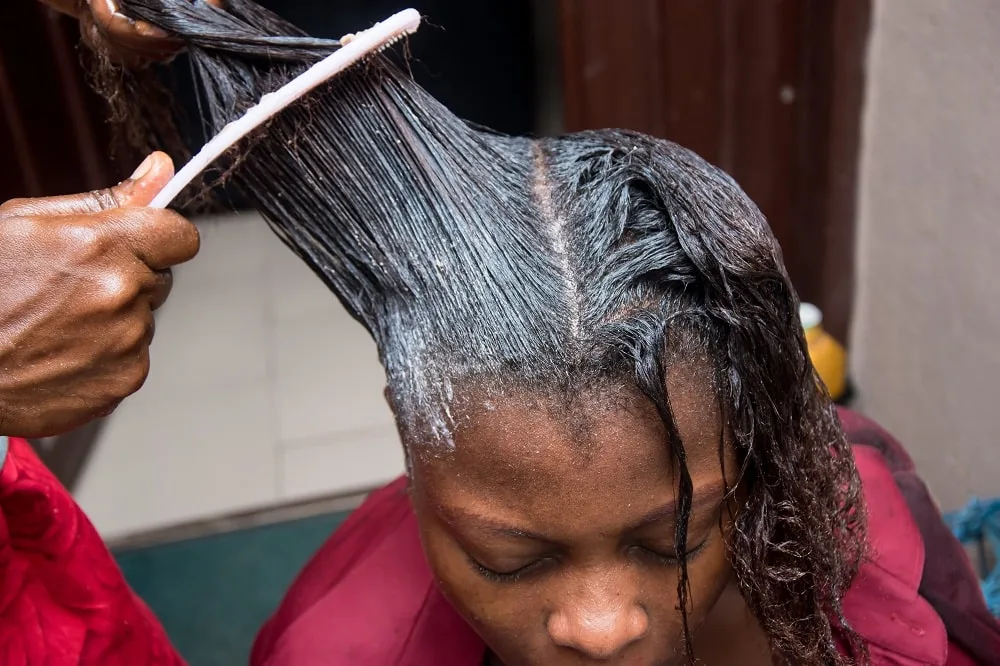
Hair relaxer is a chemical that penetrates the hair shaft and breaks the disulfide bonds. This breakdown alters the curl pattern of your hair to loosen or relax the curls.
Hair relaxers can help wavy, curly, or coily hair become looser and easier to manage. They range in strength and ingredients. To find the best relaxer for you, first determine what type of hair you have and decide what you want from this process. You should always use the weakest relaxer that will work for your hair type.
Higher-strength hair relaxers can damage your hair or scalp. A hair relaxer can also be harmful if you treat your hair too often. When using a hair relaxer, use the lowest strength possible and relax it as infrequently as possible to get the job done.
There have been several studies to determine harm to the body beyond hair when using hair relaxers. It appears that prolonged, frequent use of hair relaxers can cause health problems, such as an increased risk of cancer.
However, other studies show that moderate use does not increase the risks. If you have any health issues or notice damage to your hair, it may be time to stop relaxing your hair.
Types of Hair Relaxers
There are three main types of hair relaxers: lye hair relaxers, low lye, and no-lye hair relaxers. The main difference between these types of hair relaxers would be the strength of the product and the concentration of sodium hydroxide.
You may use these different hair relaxers depending on your hair type. Someone with looser curls to begin with or a sensitive scalp may choose to use a hair relaxer that is weaker.
However, someone with tight curls or coily hair may choose a stronger treatment.
Lye Relaxer
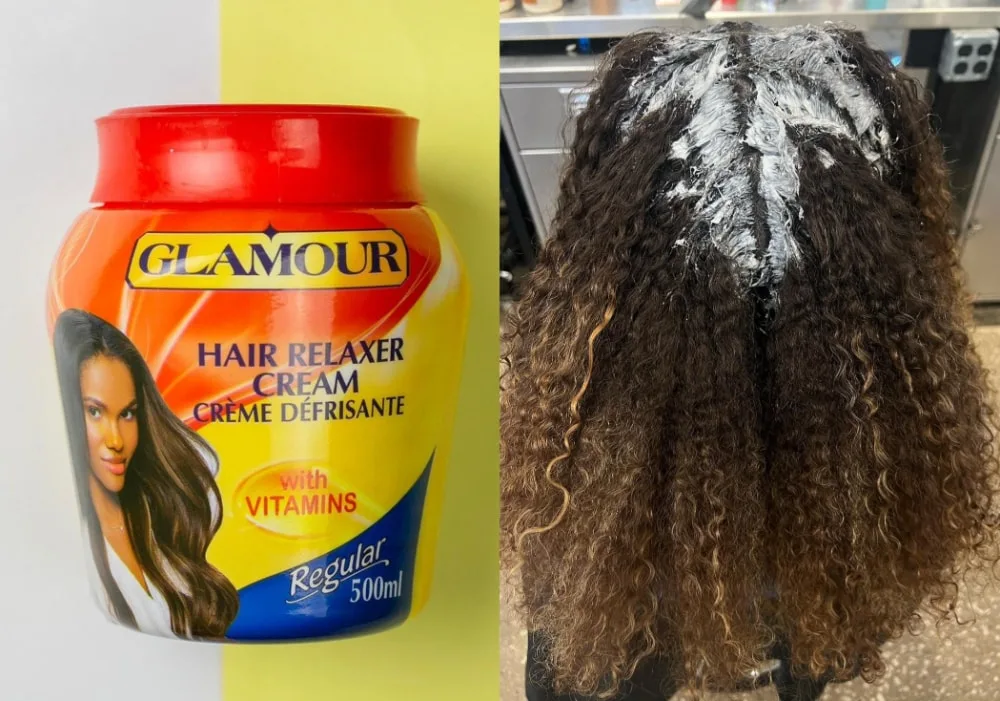
Lye relaxers are the most commonly used hair relaxer. It has a pH level of 11.5 to 14, and its main ingredient is sodium hydroxide. It can be used on wavy, curly, or coily hair. Lye relaxers are typically the go-to for hair care professionals. They are strong and work quickly, so they are the most effective for most people.
These are the strongest type of hair relaxers. This chemical process is typically faster and more efficient than the weaker alternatives.
However, it is possible that it will do damage to your hair and scalp. Those with previously damaged hair or a sensitive scalp may become irritated with use.
No-Lye Relaxer
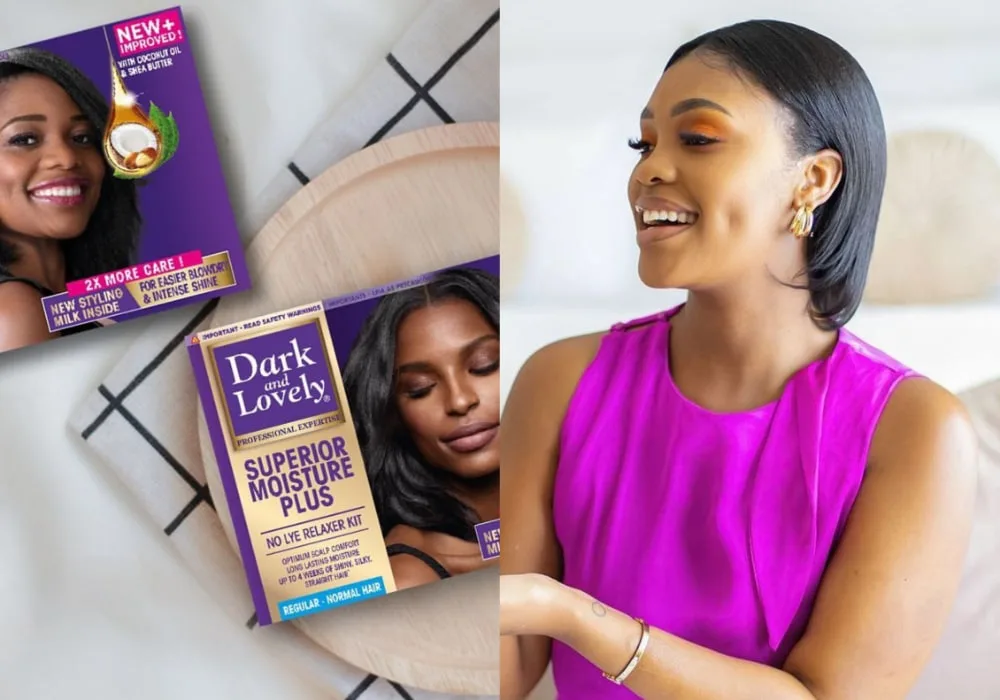
No-lye relaxers can be used to treat curly, coily, or wavy hair. These hair relaxers are not made with sodium hydroxide. Instead, they are formulated with guanidine, lithium, potassium, or calcium hydroxide.
They have a pH level of 9 to 11. No-lye relaxers may be better for people with sensitive scalps. However, as with all hair products, damage can depend on the person.
Hair relaxers without lye are designed for sensitive scalps, but there are some other considerations when deciding on a hair relaxer.
For instance, these relaxers are more likely to leave a build-up on your hair and eventually lead to dry or damaged hair.
The absence of sodium hydroxide does not mean that no-lye relaxers are more gentle on your hair. No-lye relaxers can actually be harsher and cause more damage than other hair relaxers. Proceed with caution when using any chemical treatments on your hair.
Low Lye Relaxer
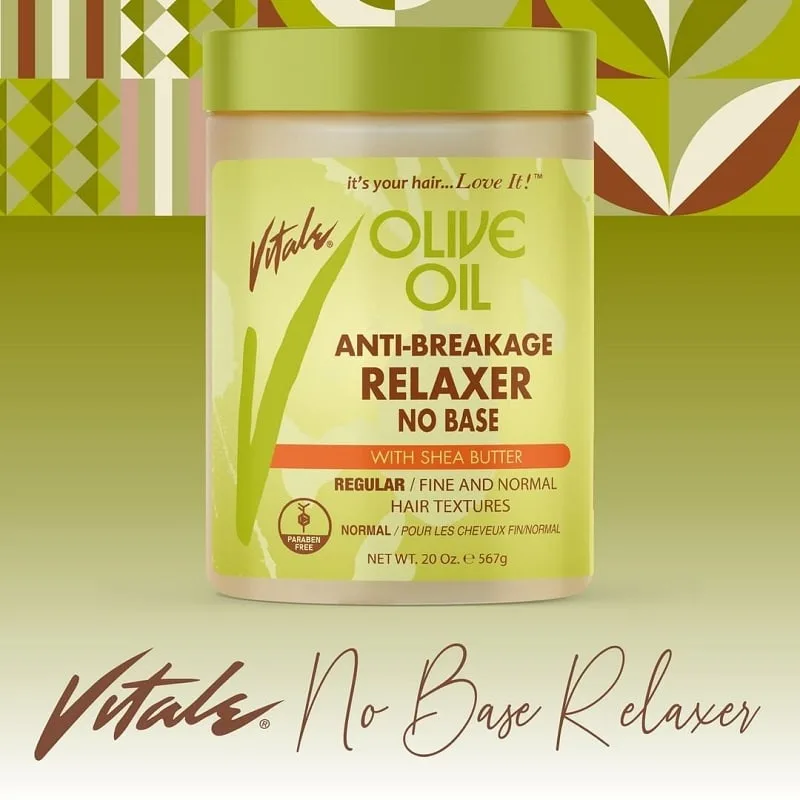
Low lye relaxer is significantly milder than other lye relaxers. It has a lower concentration of sodium hydroxide, less than 2.5%. This strength relaxer may be beneficial for hair types with a looser curl or wave that do not need as strong a relaxer to do the job.
Low lye relaxers may take longer to process due to the lower concentration of sodium hydroxide.
However, due to the lower concentration, you may be less likely to cause irreparable damage to your scalp and hair.
How To Choose the Right Relaxer for Your Hair Type
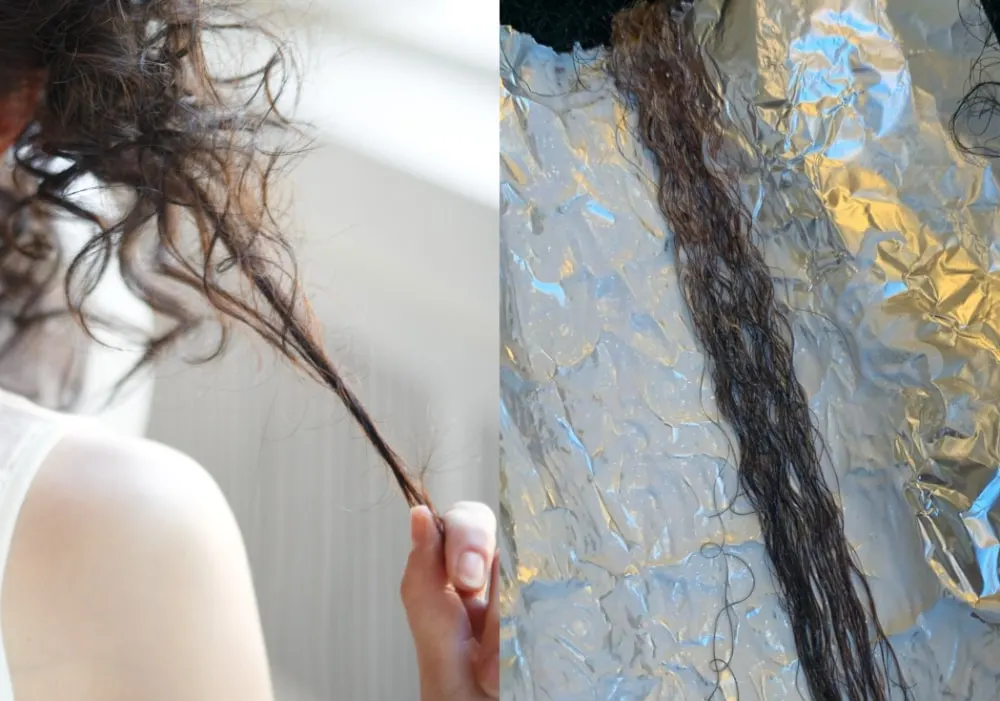
Choosing the right hair relaxer for your hair type can be stressful. Tighter coils or hair that is more coarse may require a stronger relaxer. On the flip side, looser hair, or hair that is fine, may be able to use a weaker concentration.
Your scalp and hair can suffer permanent damage from regular or prolonged use, as with any chemical hair treatment. The hair relaxers’ purpose is to change the structure of your hair. This process can result in gorgeous, more manageable hair, but it can also cause your hair to become dry and brittle.
Choosing the right hair relaxer for you can be the difference between healthy, beautiful hair and a hair disaster. One way you can find out before you treat your entire head is by using the strand test.
The strand test can help you determine what strength of hair relaxer you need. To perform the strand test, you should use a small strand of hair, usually close to or behind your ear. Use a section of your hair that will not be noticeable if things go wrong.
Apply the relaxer to this small section of hair. Processing the small piece of your hair will show you how your hair responds and any damage that will occur. You can adjust the strength as needed depending on your results.
The strand test will help to determine if this process is best for your hair. If the results show an undesirable outcome, you have saved yourself from a disaster by changing the product or strength. Using a hair relaxer that is too strong for your hair can seriously harm your hair or scalp.
Bear in mind that the effects of hair relaxers will only disappear after six to twelve weeks. To maintain your hair healthy meanwhile, don’t forget to use conditioner and oils to hydrate it, and wash it when necessary.
So, What Are The Different Types of Hair Relaxers?
The three main types of hair relaxers are lye, low lye, and no lye relaxers.
Lye relaxers are the strongest, most efficient type of hair relaxer. However, it can also come with more significant hair damage and scalp irritation.
Low lye has less sodium hydroxide, so it is not as strong or as harsh as the lye hair relaxers. It may cause less damage to your hair, but it will not work as effectively.
No-lye hair relaxers have no sodium hydroxide. They use other hydroxide bonds to loosen the curls. It can cause damage from the harsh process but is also more prone to build up. Choosing the right hair relaxer for you is crucial.
When using hair relaxers, consider using the weakest strength relaxer that will work effectively on your curl type, and relax your hair as infrequently as possible to avoid damage.
Trending Topics:
- How Long Do Hair Relaxers Last?
- Natural Hair Vs. Relaxed Hair
- Pros and Cons of Using Hair Relaxers
